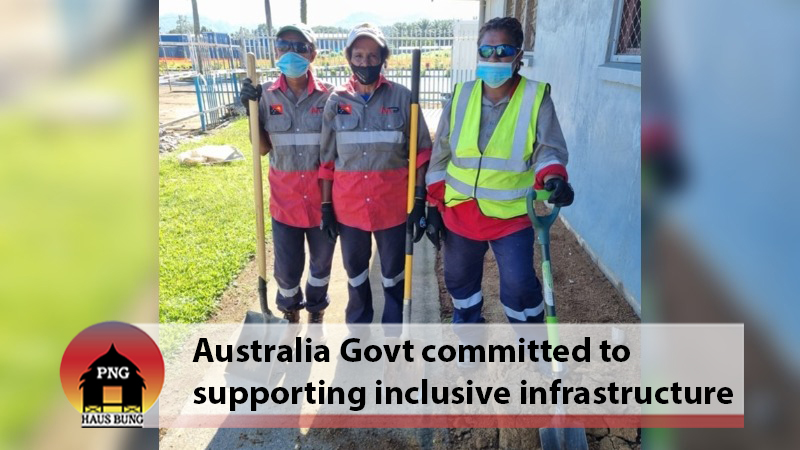The Australian Government is committed to ensuring all infrastructure investments across Papua New Guinea serve people of all backgrounds and abilities, ensuring communities everywhere benefit from secure, reliable and
sustainable infrastructure.
Infrastructure – that reflects and responds to people’s diverse needs – plays a pivotal role in empowering communities, especially women, girls and marginalized people.
At its best, infrastructure can change the behavior and habits of the people it serves, driving a wide social impact.
It can reduce inequality, widen access to jobs and education, make communities more resilient to climate change and promote public health and wellbeing.
Australia’s Economic and Social Infrastructure Program (ESIP) works to ensure all Australian-funded infrastructure is designed and built using an inclusive approach.
This means engaging communities – the people who will use the infrastructure – as well as local construction companies, and government agencies throughout each part of the construction process.
ESIP is engaged in several major infrastructure redevelopments across PNG, from the new Kimbe Town Market in West New Britain Province to the Daru General Hospital in Western Province, the Metoreia Health Centre in Port
Moresby and the Lae City Market in Morobe Province.
Each of these developments has the power to transform people’s livelihoods in PNG, especially women, girls and people with disabilities.
Designing infrastructure that considers the people’s different needs means everyone can experience the benefits of a new hospital, market, school, or other facility.
ESIP’s Director of Social Infrastructure (Markets and Education), Taiko Lalo, emphasised how inclusive infrastructure accounts for the needs of everyone by ensuring equal access and benefit for all (regardless of gender, race, class, sexuality and disability and especially for the vulnerable and marginalised).
“When designing markets, you must ensure everyone accessing the market is safe and secure, the space is functional, and it meets the needs of the majority women vendors and patrons accessing the infrastructure,” Ms
Taiko added.
The Australian Government, through its infrastructure investments, values the needs of women and girls, vulnerable groups including people with disabilities and ensures their voices are included in the design process of
construction projects.

